Clinical Insights
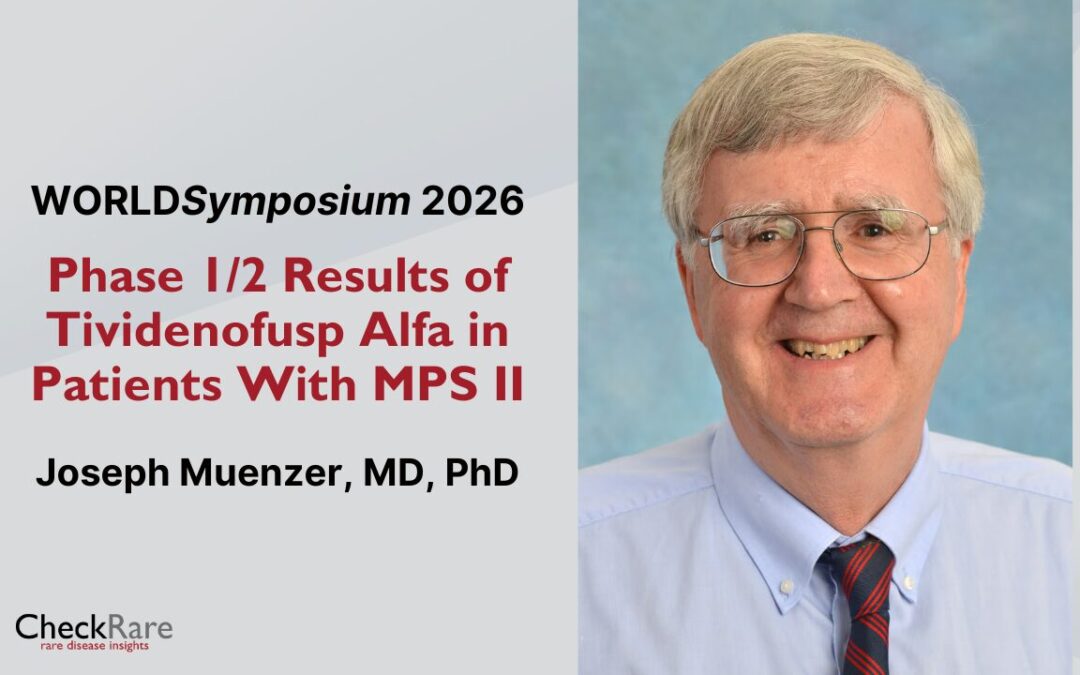
Phase 1/2 Results of Tividenofusp Alfa in Patients With MPS II
Joseph Muenzer, MD, PhD, Pediatric Biochemical Geneticist at University of North Carolina Chapel Hill, discusses results from a phase 1/2 study of tividenofusp alfa in patients with mucopolysaccharidosis II (MPS II; Hunter syndrome). MPS II is an...
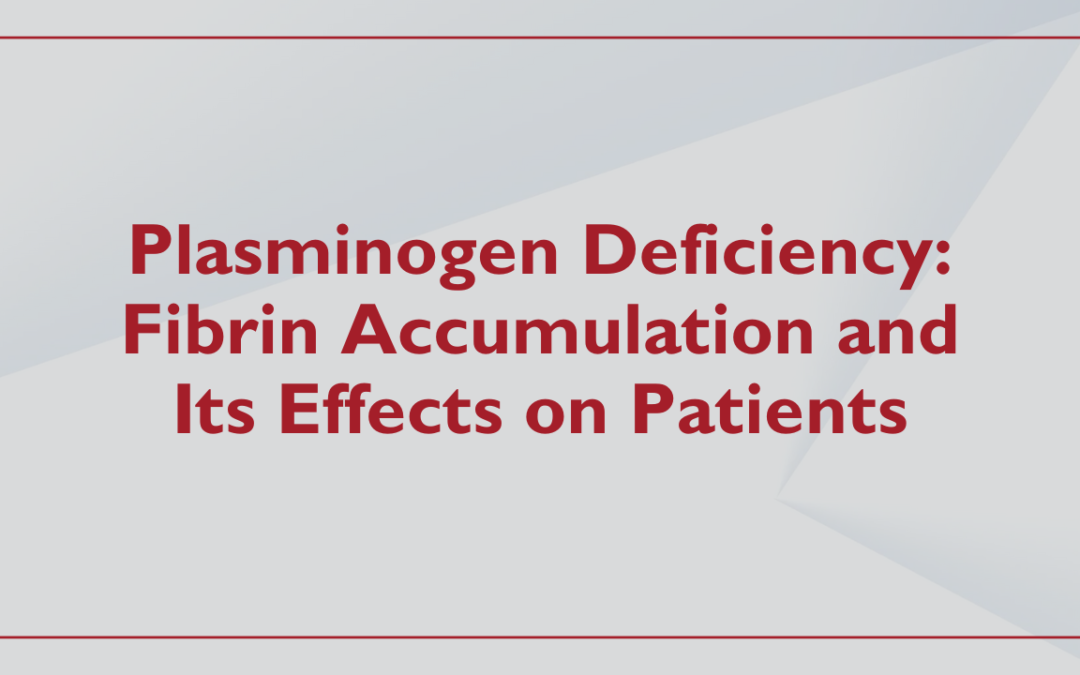
Plasminogen Deficiency: Fibrin Accumulation and Its Effects on Patients
Plasminogen is a precursor protein that is converted into plasmin. Plasmin is crucial to break down fibrin, the main protein component of blood clots.[1] When the body does not produce sufficient plasminogen or does not produce adequate active plasminogen, fibrin can...

From Seizures to Sequencing: How Genetic Testing Is Changing Epilepsy Care
Sophia Ceulemans, offers an overview of the rapidly advancing field of genetic testing for this unexplained epilepsy.

Targeting HRD and BRCA: The Expanding Role of PARP Inhibitors in Ovarian Cancer Treatment
Bradley J. Monk, MD, and Paul DiSilvestro, MD, discuss the role of PARP inhibitors in ovarian cancer treatment.
More
Real-World Outcomes of Arimoclomol in Patients With Niemann Pick Type C
Caroline Hastings, MD, Pediatric Hematology Oncology, Professor of Pediatrics at the University of California, San Francisco, discusses real-world outcomes of arimoclomol in patients with Niemann...
Age-Stratified Clinical Burden of Post-Allogeneic HSCT Complications in Hurler Syndrome (MPS IH)
Ali Mohajer, PhD, Qral Group, discusses the age-stratified burden of post-allogeneic hematopoietic stem cell transplantation (post-allo-HSCT) complications in Hurler syndrome (MPS IH). MPS IH...
MajesTEC-9 Clinical Trial of Teclistamab in Patients With Multiple Myeloma
Roberto Mina, MD, Associate Professor at Winship Cancer Institute of Emory University, discusses the Majestec-9 clinical trial of Tecvayli (teclistamab) in patients with multiple myeloma (MM)....
Long-Term Outcomes From the PIONEER Study in Patients With Indolent Systemic Mastocytosis
Tsewang Tashi, MD, Hematologist at the Huntsman Cancer Institute at the University of Utah, discusses long-term data from the PIONEER clinical trial examining the use of avapritinib in patients with...
Using Artificial Intelligence to Analyze Castleman Disease Histopathology
Robert S. Ohgami, MD, PhD, Professor of Pathology, University of Utah, and Founding Vice President and Chief Medical Director, ARUP Institute for Research and Innovation, discusses the utilization...
Elritercept’s Effect on Transfusion Independence in Patients With Myelodysplastic Syndromes
Lynette Chee, PhD, Hematologist at The Royal Melbourne Hospital/ Peter MacCallum Cancer Centre, discusses elritercept’s effect on transfusion independence (TI) in patients with myelodysplastic...
February 28 Is Rare Disease Day
February 28 Is Rare Disease Day! Rare Disease Day, observed on the last day of February every year, is a reminder of the challenges faced by those living with a rare disease....
52-Week Results From the VERIFY Clinical Trial of Rusfertide in Patients With Polycythemia Vera
Andrew T. Kuykendall, MD, VERIFY Lead Investigator and Associate Member in the Department of Hematology at Moffitt Cancer Center, discusses 52-week results from the VERIFY clinical trial testing...
Committee for Medicinal Products for Human Use Recommendation for Sotatercept for the Treatment of Pulmonary Arterial Hypertension
Marius Hoeper, MD, Respiratory Physician at Hannover Medical School, Germany, discusses a recent regulatory update by the Committee for Medicinal Products for Human Use (CHMP) of the European...
Positive Topline Results from a Study Testing Nipocalimab in Patients With Systemic Lupus Erythematosus
Leonard L. Dragone, MD, PhD, Disease Area Leader in Autoantibody and Rheumatology, Johnson & Johnson Innovative Medicine, discusses positive topline results from a study of nipocalimab in...
Approval of Nerandomilast Tablets To Treat Patients With Progressive Pulmonary Fibrosis
Shervin Assassi, MD, Director, Division of Rheumatology at McGovern Medical School, discusses the approval of Jascayd (nerandomilast) tablets for treatment of patients with progressive pulmonary...
Results from the XTEND-ed Clinical Trial Evaluating Efanesoctocog Alfa for the Treatment of Patients With Hemophilia A
Lynn Malec, MD, Versiti Blood Research Institute and Medical College of Wisconsin, discusses results from the XTEND-ed clinical trial evaluating efanesoctocog alfa for the treatment of patients with...
Neuroblastoma
Neuroblastoma is a rare childhood cancer, but it is the most common extracranial solid tumor in children. It is a neuroendocrine tumor that originates in neuroblasts or neural crest progenitor...
Uplizna (inebilizumab): A First-In-Class Approach to Generalized Myasthenia Gravis Treatment
Richard Nowak, MD, Director of the Myasthenia Gravis Clinic at Yale University, discusses the recent U.S. Food and Drug Administration (FDA) approval of Uplizna (inebilizumab) for the treatment of...
FDA Approved Darzalex Faspro Combination Therapy for Patients With Transplant Ineligible Newly Diagnosed Multiple Myeloma
The US Food and Drug Administration (FDA) has approved Darzalex Faspro (daratumumab and hyaluronidase) in combination with bortezomib, lenalidomide, and dexamethasone (D-VRd) for the treatment of...
Bleximenib Combination Therapy for Patients With Acute Myeloid Leukemia
Hartmut Döhner, MD, Professor of Medicine and Medical Director of the Department of Hematology and Oncology, Ulm University, Germany, discusses bleximenib combination therapy for treatment of...
New Formulation of Berotralstat for Treatment of Pediatric Patients With Hereditary Angioedema
Raffi Tachdjian, MD, Associate Clinical Professor of Medicine & Pediatrics, Division of Allergy & Clinical Immunology, University of California Los Angeles, discusses a new formulation of...
FDA Expands Indication for Cerezyme (Imiglucerase) To Treat Gaucher Disease Type 3
The US Food and Drug Administration (FDA) has approved the expanded indication of Cerezyme (imiglucerase) for the treatment of non-neuronal symptoms in adult and pediatric patients with Gaucher...
Rare Diseases in Ireland – New Efforts to Improve Access to Care
Each country takes a different approach to rare diseases, from the way it defines the term to the health policies it implements to its approach to research. In Ireland, as in the rest of Europe,...
Data From the CORAL Trial of Nalbuphine ER in Patients With Idiopathic Pulmonary Fibrosis
Data from the Phase 2b CORAL trial of nalbuphine extended release (ER) for the treatment of chronic cough in patients with idiopathic pulmonary fibrosis (IPF) was recently published in the Journal...
Recent Videos
From Seizures to Sequencing: How Genetic Testing Is Changing Epilepsy Care
Chapter 4: How Diagnosis Has Evolved in Unexplained Epilepsy
Social Wall
Healthcare Resource Use for Patients With MPS III
Two-year Follow Up of FLT201 Gene Therapy in Adults with Gaucher Disease Type 1
Survey of Clinical Guidelines for MPS II
🧬Genetics plays a crucial role in the diagnosis, treatment, and understanding of epilepsy.
Learn how the field is advancing genetic testing for this challenging disorder at https://checkrare.com/how-genetic-testing-is-changing-epilepsy-care/
#CheckRare #RareNeurology #Epilepsy ...#RareEpilepsy #GeneticTesting
🔎New Learning Center- Plasminogen Deficiency: Fibrin Accumulation and Its Effects on Patients
Learn more at the link in our bio.
#CheckRare #RareGenetic #PlasminogenDeficiency #PLGD1
🔎New Learning Center- Plasminogen Deficiency: Fibrin Accumulation and Its Effects on Patients
Learn more at
https://checkrare.com/plasminogen-deficiency-fibrin-accumulation-and-its-effects-on-patients-2/
#CheckRare #RareGenetic #PlasminogenDeficiency #PLGD1
Bradley J. Monk, MD, and Paul DiSilvestro, MD, discuss the clinical advances in the treatment of ovarian cancer, including research using PARP inhibitors, a treatment option dramatically improving clinical outcomes for certain women with advanced ovarian cancer.
Read more at
...https://checkrare.com/parp-inhibitors-in-ovarian-cancer-treatment/
#CheckRare #RareCancer #OvarianCancer #OvarianCancerTreatment
Bradley J. Monk, MD, and Paul DiSilvestro, MD, discuss the clinical advances in the treatment of ovarian cancer, including research using PARP inhibitors, a treatment option dramatically improving clinical outcomes for certain women with advanced ovarian cancer.
Read more at
From Seizures to Sequencing: How Genetic Testing Is Changing Epilepsy Care
Chapter 1: Unexplained Epilepsy Overview
Chapter 2: Genetics in Epilepsy
Chapter 3: Diagnostic Pathways in Unexplained Epilepsy
Chapter 4: How Diagnosis Has Evolved in Unexplained Epilepsy
Chapter 5: Genetic Testing in Unexplained Epilepsy
Chapter 6: Current Guidelines for Unexplained Epilepsy


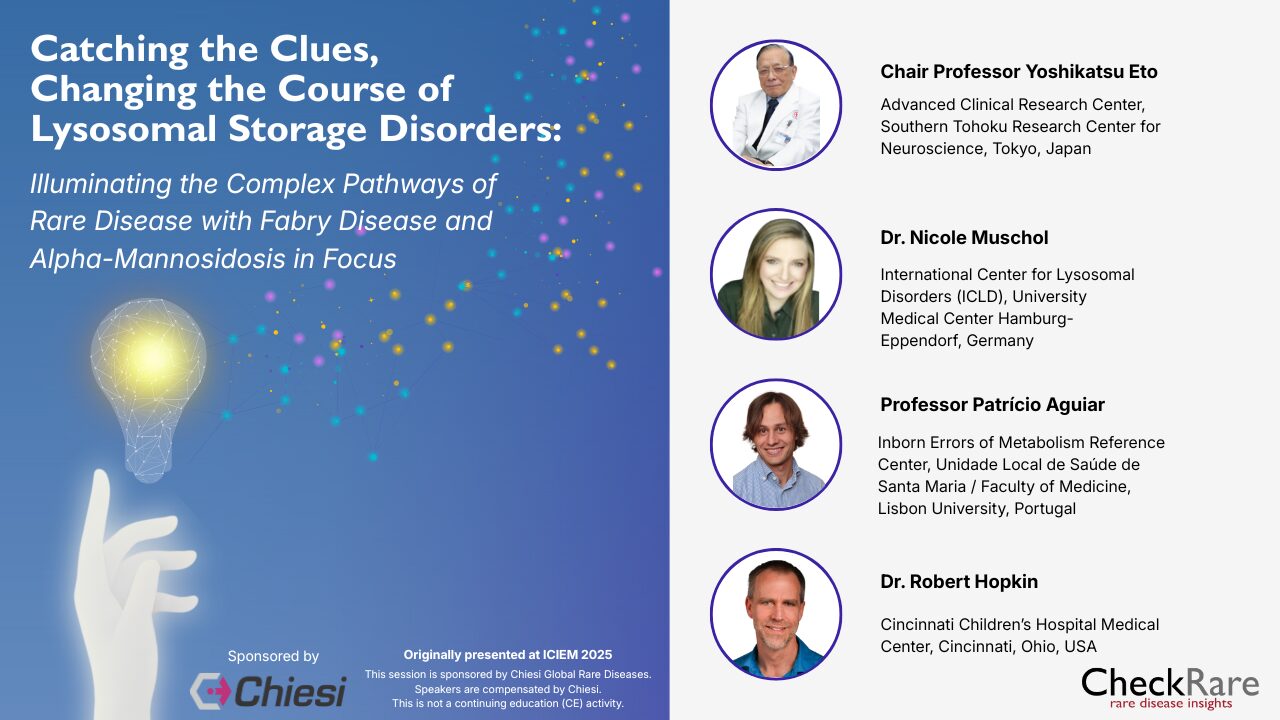





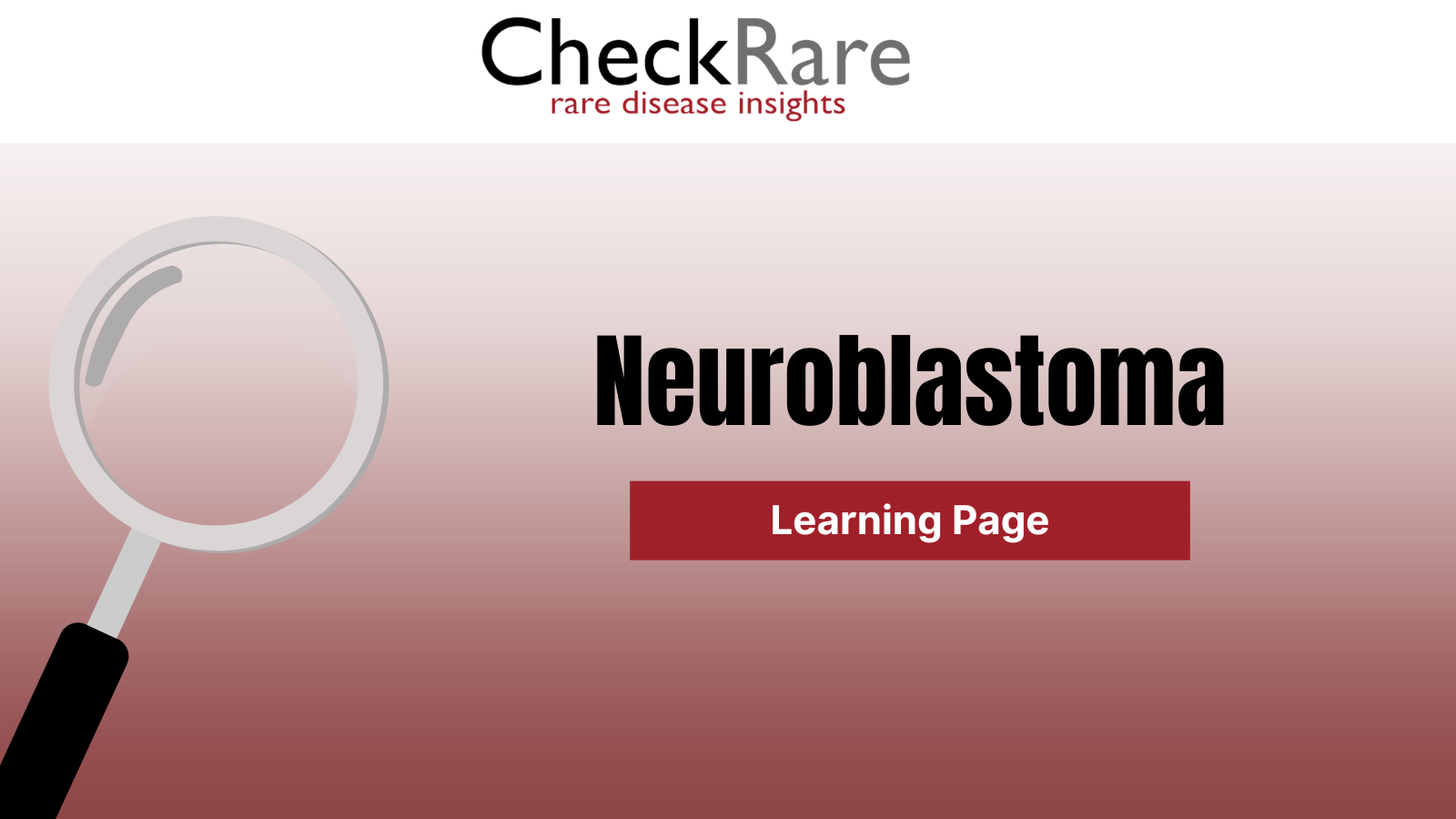


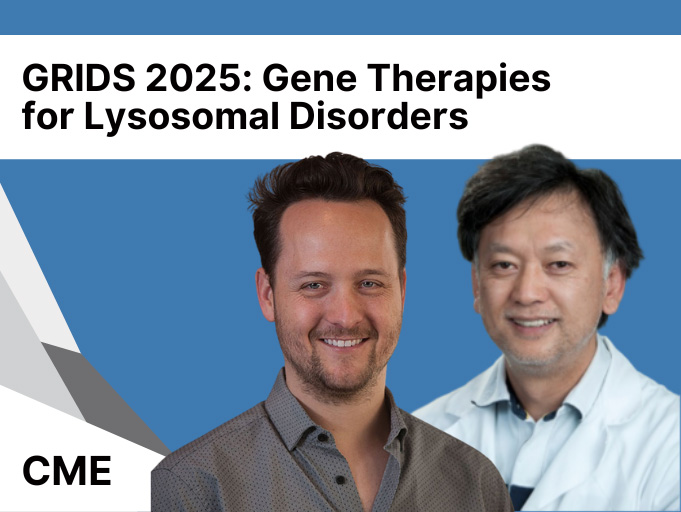






Healthcare Resource Use for Patients With MPS III
CheckRare 63 minutes ago